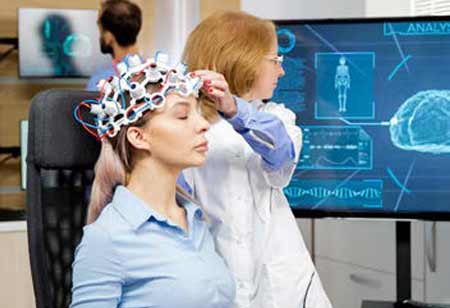Thank you for Subscribing to Healthcare Business Review Weekly Brief
Be first to read the latest tech news, Industry Leader's Insights, and CIO interviews of medium and large enterprises exclusively from Healthcare Business Review
Technology's Role in Shaping Medical Billing
The medical billing landscape is evolving with significant trends, such as the incorporation of automation and artificial intelligence, the emergence of new telehealth billing models, and a growing reliance on cloud-based medical billing systems.

By
Healthcare Business Review | Tuesday, January 06, 2026
Stay ahead of the industry with exclusive feature stories on the top companies, expert insights and the latest news delivered straight to your inbox. Subscribe today.
Fremont, CA: Medical billing involves preparing and submitting healthcare claims to insurance companies to secure reimbursement for services provided by physicians and healthcare organizations. After a service is converted into a billing claim, the medical biller ensures all necessary steps are taken to confirm the provider is properly compensated. A skilled medical biller plays a crucial role in optimizing revenue performance for medical practices and healthcare facilities.
The Transformative Impact of Medical Billing in Healthcare:
Medical billing must incorporate modern technologies such as electronic health records (EHRs) as it evolves from a simple claim processing system to an essential component of patient care and financial stability. This will truly revolutionize billing; the future patient's treatment will be depicted as a procedure that allows charges to be examined in real time and with greater transparency. These shift the paradigm from patient trust to timely payment while maintaining revenue for healthcare providers.
Trends in Medical Billing:
Medical billing is undergoing rapid transformation, and the following year, it will feature technologies that will not only increase efficiency and correction but also drive additional revenue development. Automation and AI integration are among the most important trends in medical billing. These would reduce the time lost when an issue emerges by utilizing predictive analytics for a prompt resolution, boosting cash flow and operating efficiency for healthcare providers. Furthermore, the increased use of telemedicine will need new billing models. These emerging solutions will address difficult telehealth billing gaps while also ensuring adequate compliance with changing laws to optimize compensation.
Benefits of Medical Billing:
Medical billing is crucial in the healthcare sector as it facilitates the seamless and effective management of providers' revenue cycles. One of its primary advantages is increased accuracy, as automated billing systems eliminate errors in coding and claim filing, resulting in fewer rejections and delays. Medical billing also improves cash flow by expediting the reimbursement process, which ensures that providers receive timely payments from insurance companies and patients. It also minimizes administrative tasks, allowing healthcare personnel to spend more time on patient care rather than paperwork. Furthermore, professional billing services make compliance with healthcare standards easier, allowing providers to avoid penalties and legal complications. Overall, medical billing improves financial management, efficiency, and the overall patient experience.






